Springtime in Alabama brings a wealth of livestock opportunities for...


Springtime in Alabama brings a wealth of livestock opportunities for...
By Graham Brooks New and special beer releases are a point of pride at New Realm Brewing–Auburn and that will continue with the unveiling of Pine Hill Pumpkin Amber as a new pumpkin beer just in time for spooky season and Oktoberfest. Named after Auburn’s oldest...
After more than 40 years of teaching, scholarship, leadership development and service, Auburn University Associate Professor Don Mulvaney announced his professional retirement, effective Oct. 1. A longtime faculty member in the Department of Animal Sciences, Mulvaney...
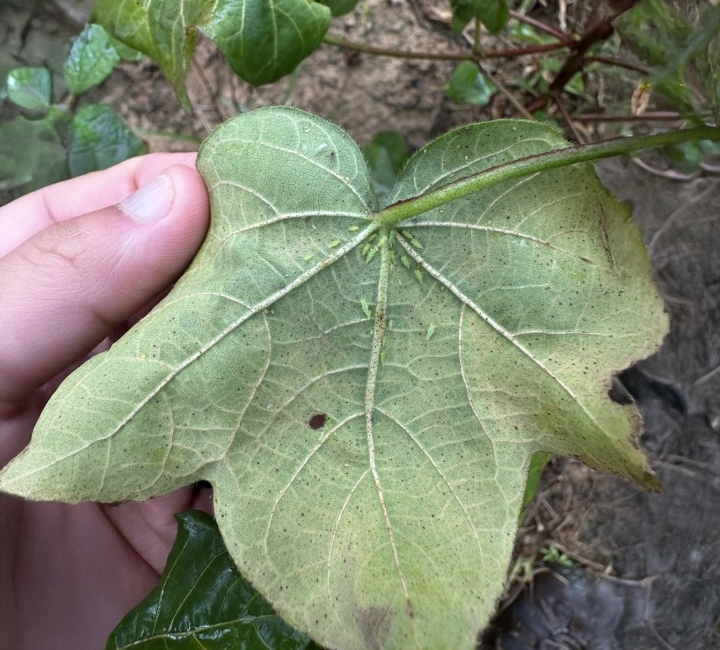
In an already stressful and trying growing season, researchers at Auburn University and Alabama Cooperative Extension professionals have confirmed an invasive insect,...
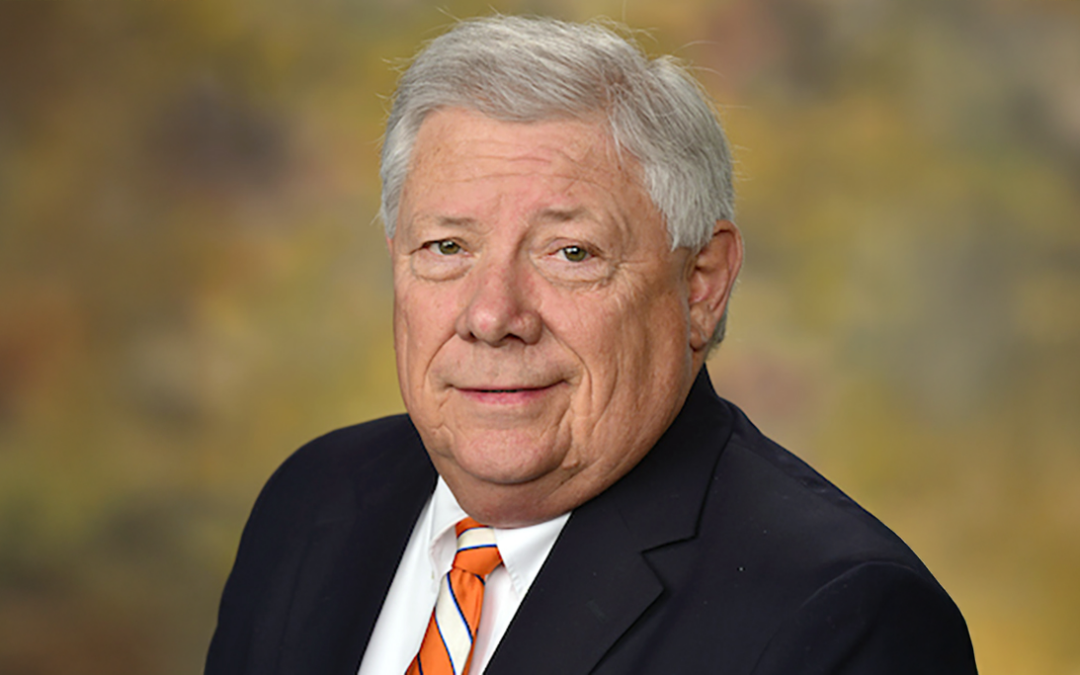
Auburn University Professor of Animal Sciences Wayne Greene was recognized by a national organization for significant contributions to animal sciences through teaching,...
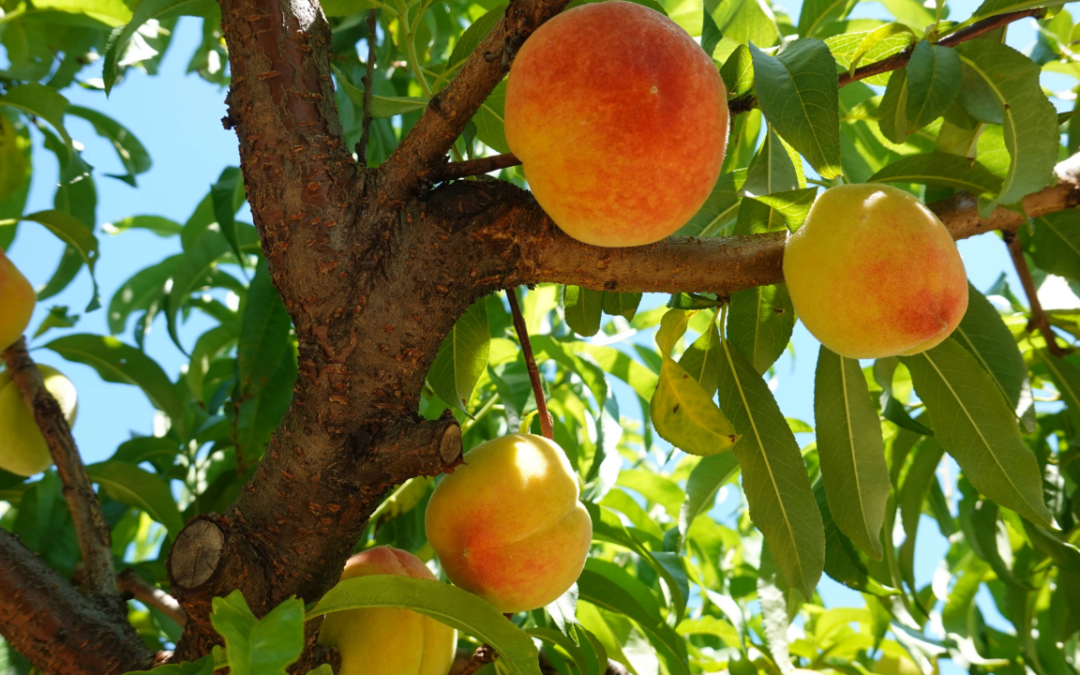
Right in the heart of central Alabama, research is conducted throughout the year to find ways to protect one of the state’s most precious commodities—peaches. Among the...
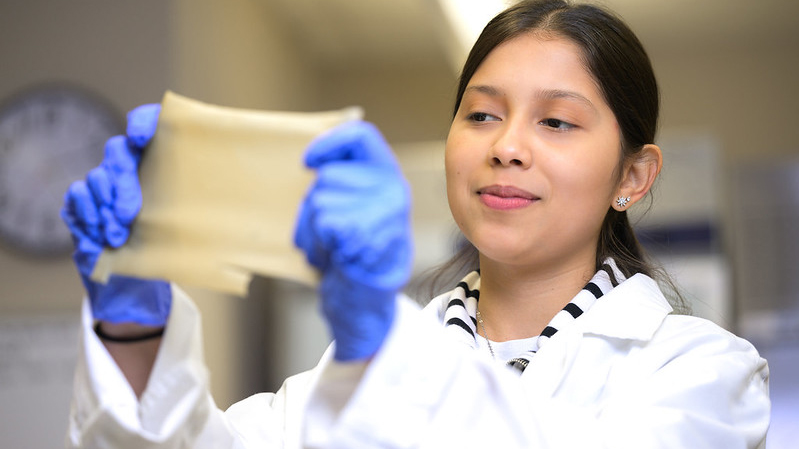
International student Sierra finds passion for food science By Rachel Damiani Katherine Sierra, an Auburn University master’s student in food science, has won multiple awards that hinge on her public speaking ability, including a third-place award for her poster...
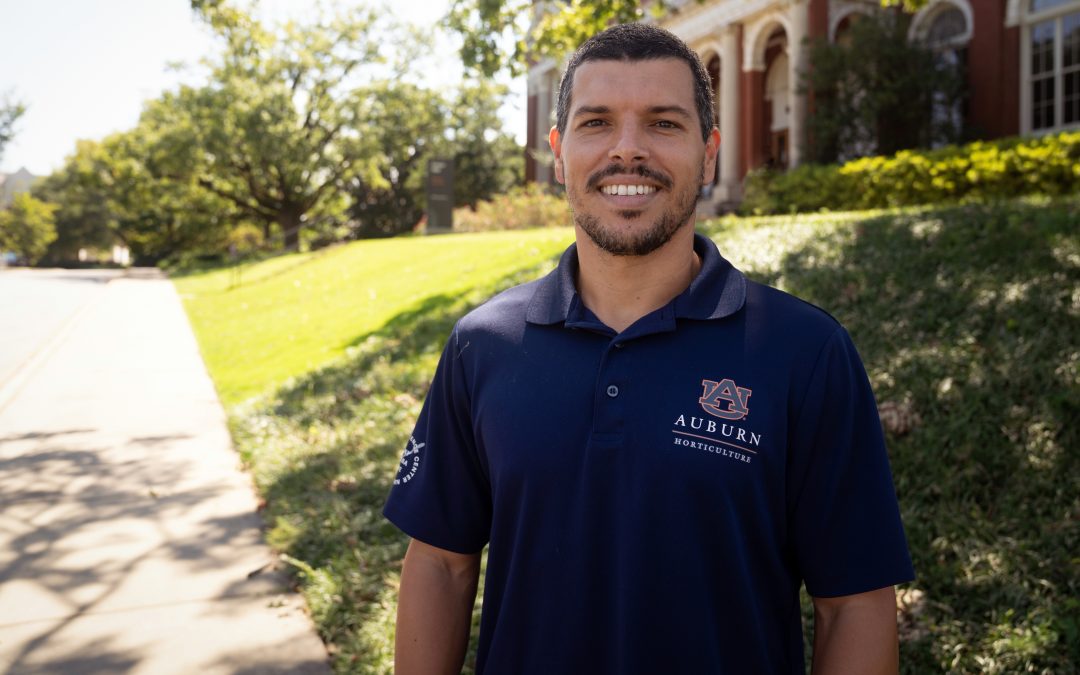
Andre da Silva, assistant professor and extension vegetable specialist in the Auburn University Department of Horticulture, was recently named the national winner of the 2023 Professional Early Career Award from the American Society for Horticultural Science (ASHS) at...
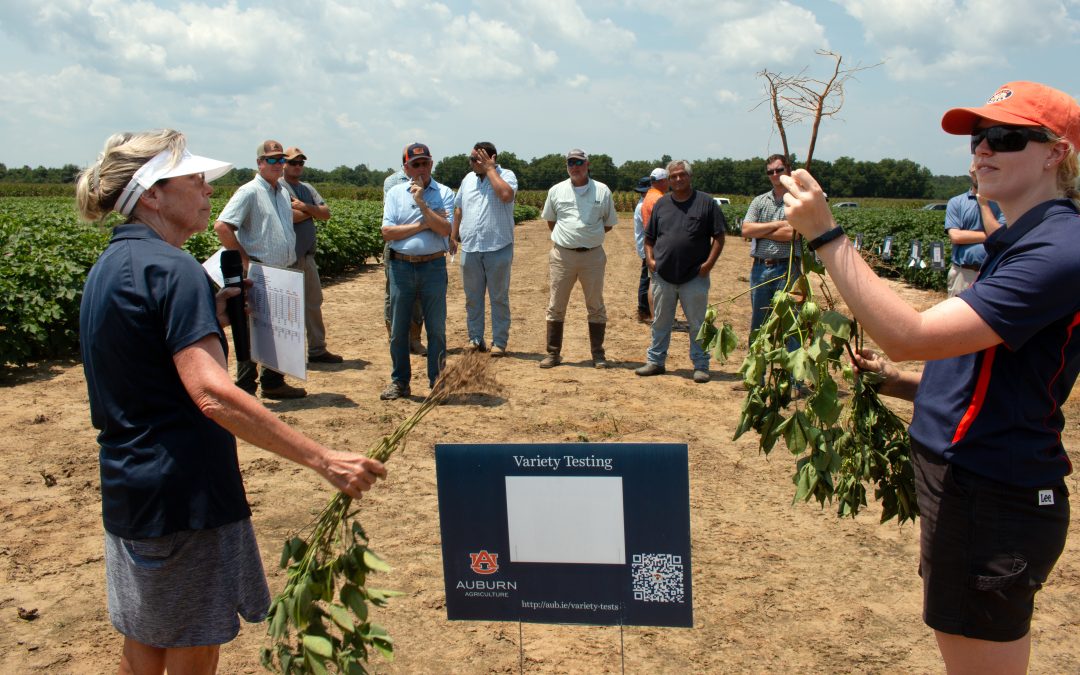
Farmers have a hard enough time battling the pests they can see. The ones they can’t see — like plant parasitic nematodes — present another challenge altogether. These worm-like, sometimes microscopic animals are major agricultural pathogens that attack Alabama crop...
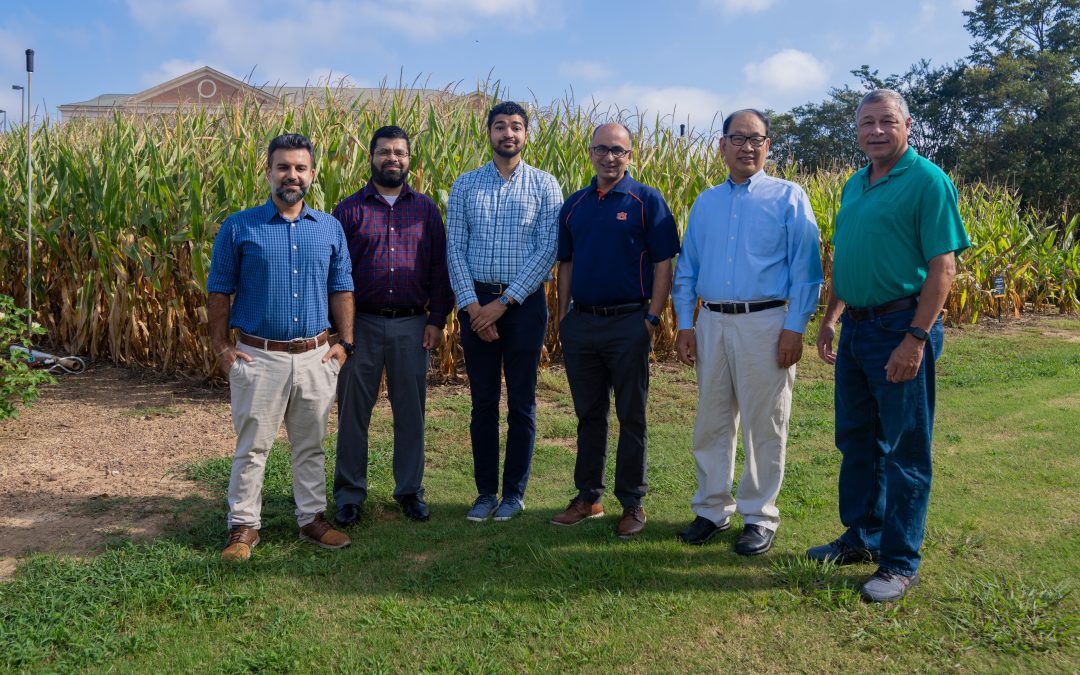
The Auburn University College of Agriculture and the Alabama Agricultural Experiment Station were awarded approximately $6 million from the U.S. National Science Foundation (NSF) for a four-year project entitled “Developing effective adaptation strategies to enhance...

Two researchers in the Auburn University College of Agriculture and the Alabama Agricultural Experiment Station are recipients of separate grants from the USDA-NIFA Agriculture and Food Research Initiative (AFRI), the nation’s leading competitive grant program for...
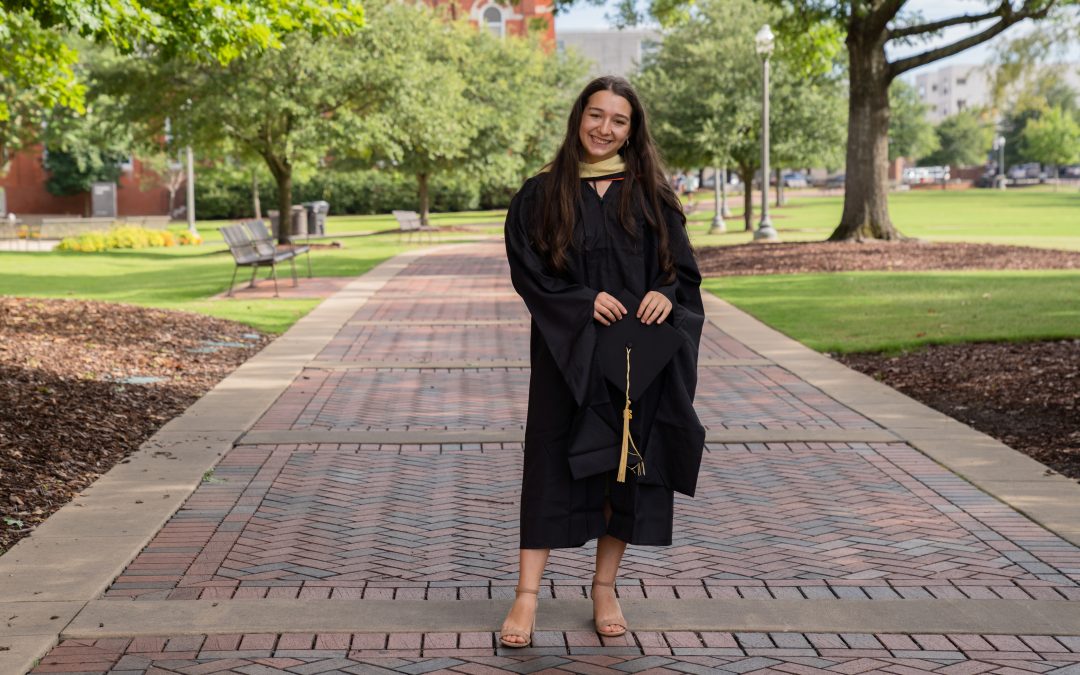
As 18-year-old Mariannah Harding straightened her master’s regalia on Samford Lawn, she reflected on the days she worked in Auburn University’s most iconic building. “I watered the plants in Samford Hall,” she said. “I remember looking outside, watching students take...
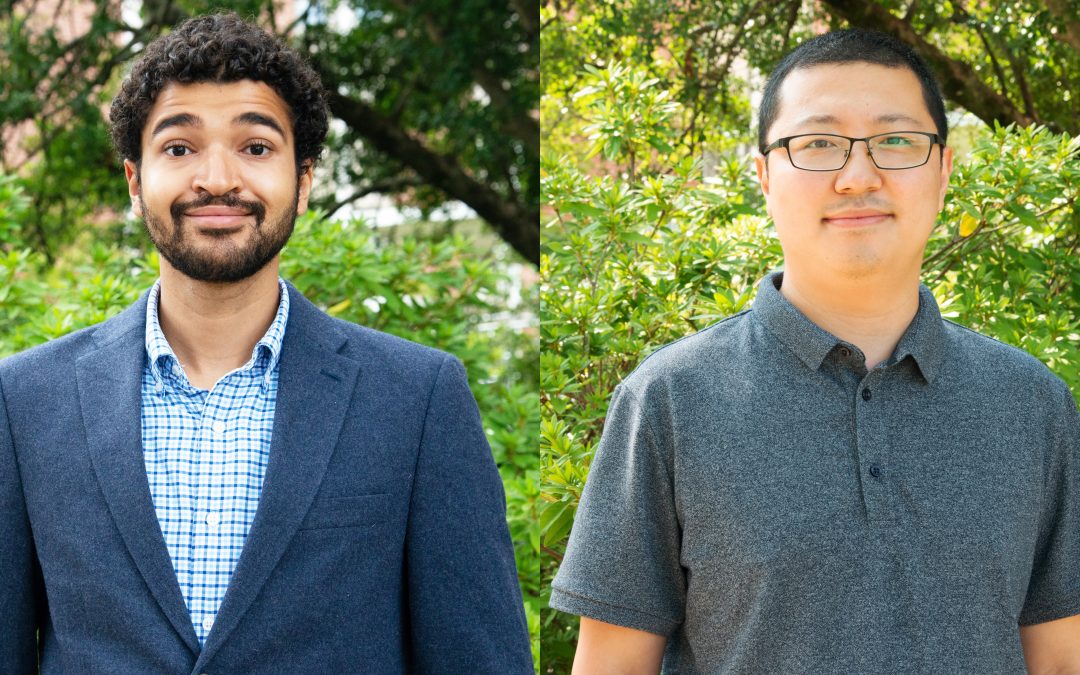
Two faculty members from the College of Agriculture’s Department of Agricultural Economics & Rural Sociology are being honored nationally for their published works. Assistant Professor Wenying Li has received the 2022 Best Economics Paper in Food Safety and...
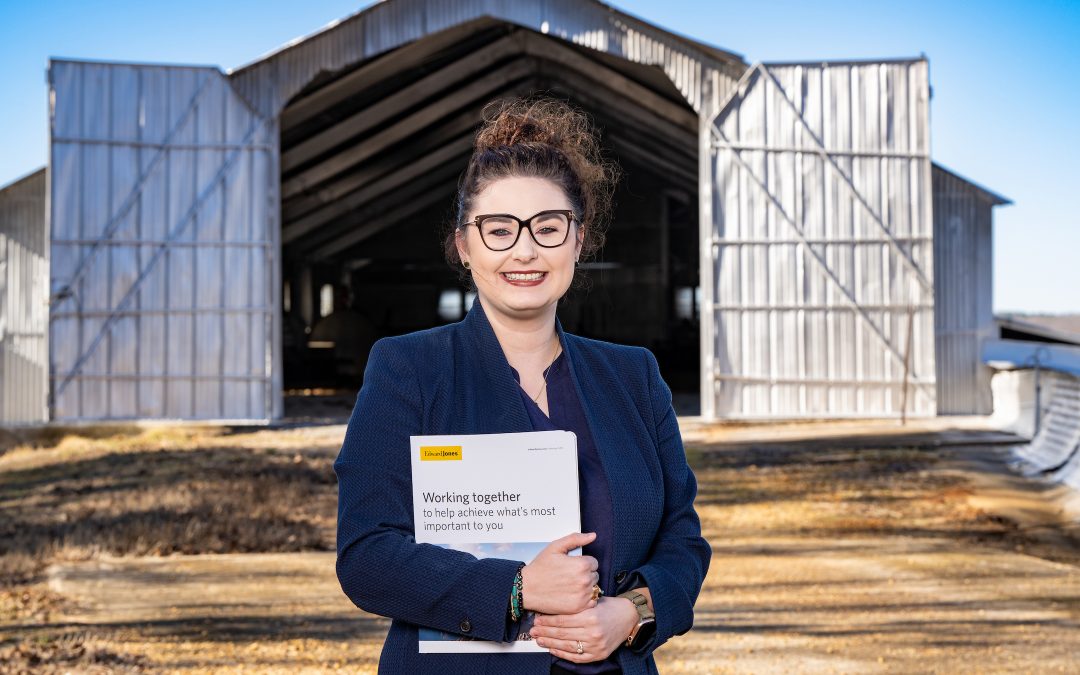
By Mike Jernigan Why major in agriculture today? There are many reasons, and some of them have a certain degree of urgency. Food insecurity is one of the greatest problems facing our planet. Solving the problems of producing more food in an increasingly hungry world...
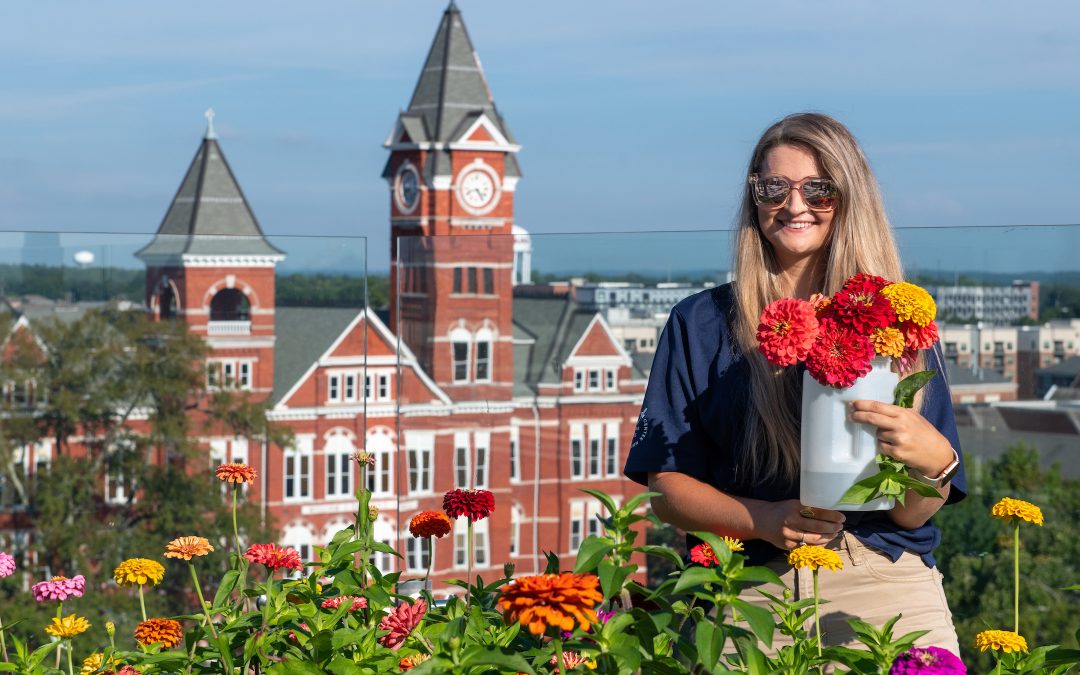
You’ve heard of farm-to-fork restaurants. At Auburn, we offer rooftop to fork, and it’s only an elevator ride away. Atop the Tony and Libba Rane Culinary Science Center, adjacent to Ag Hill on the Auburn campus, lies an entirely edible rooftop garden operated by...
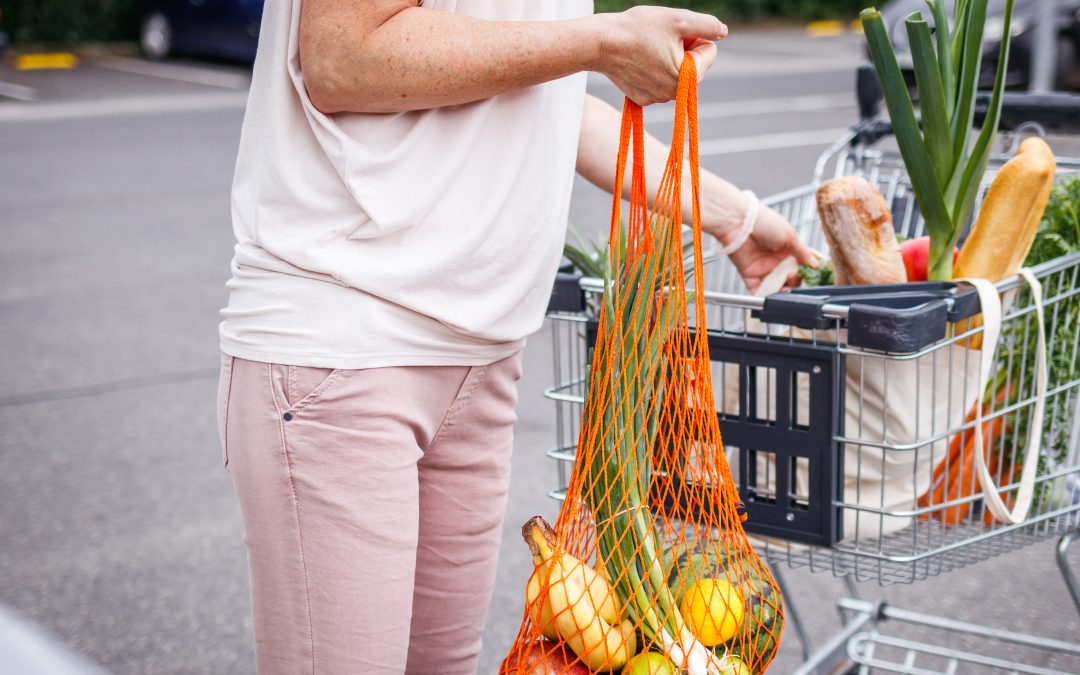
There’s lot of waste in this land of plenty, with an estimated 30% of the edible food produced annually in the U.S. being wasted. This amounts to more than 133 billion pounds and $160 billion worth of food, with a significant portion wasted at the consumer level. This...
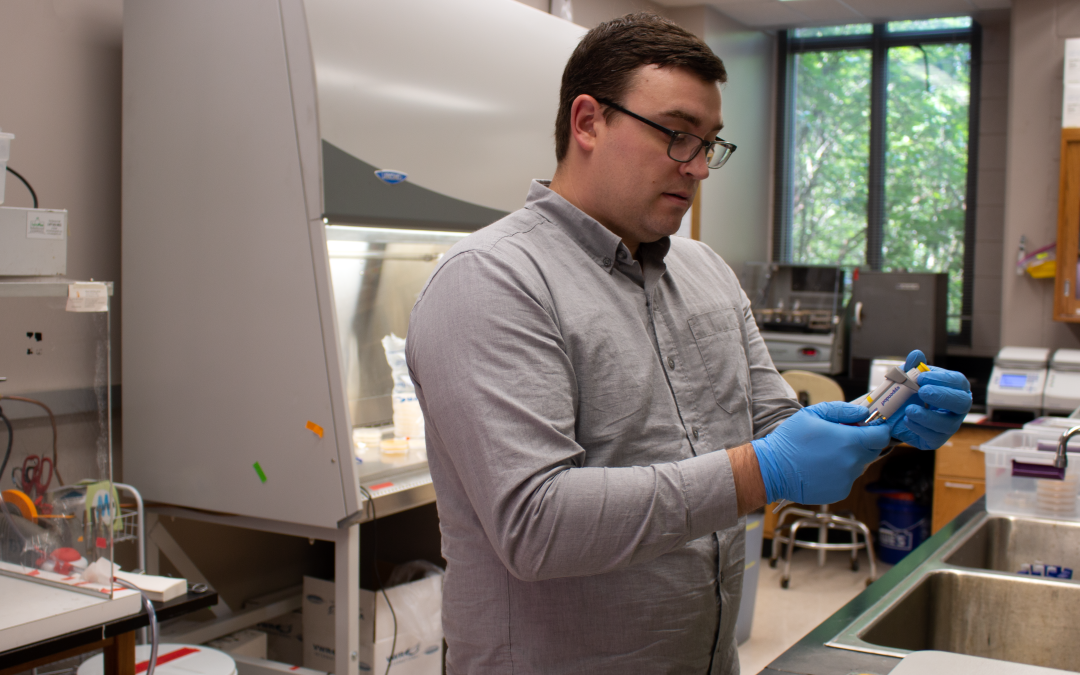
With scientific research and discovery occurring at a dizzying rate, it’s difficult to imagine there are frontiers yet to be fully explored, but the microbiome is one. While microbiomes have always existed, little is known about their function in plants and animals....

An internationally recognized cotton breeder has been selected as the next head of the Department of Crop, Soil and Environmental Sciences in the Auburn University College of Agriculture. Steven Hague, most recently a professor in the Department of Soil and Crop...
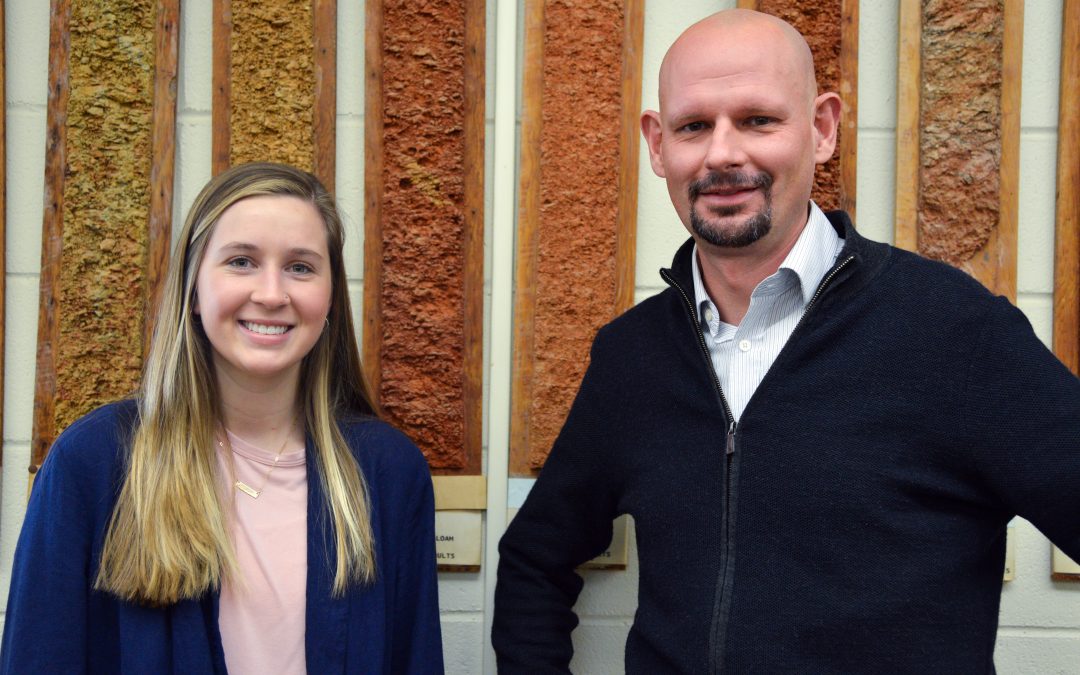
What happens in a wetland? It’s a simple question with a not-so-simple answer that Auburn University graduate student Olivia LeFevre started studying as an undergraduate under the direction of Associate Professor Thorsten Knappenberger. “I came to Dr. Knappenberger...

An Auburn University associate professor and Extension specialist has been appointed to the USDA National Advisory Committee on Meat and Poultry Inspection (NACMPI). “I am honored to accept this appointment to the USDA National Advisory Committee on Meat and Poultry...

The agriculture industry in the United States is one of the most vulnerable to climate change because of its reliance on favorable weather. Because of this, an Auburn University researcher is seeking to fill a need for rigorous, quantitative evidence of how cover...
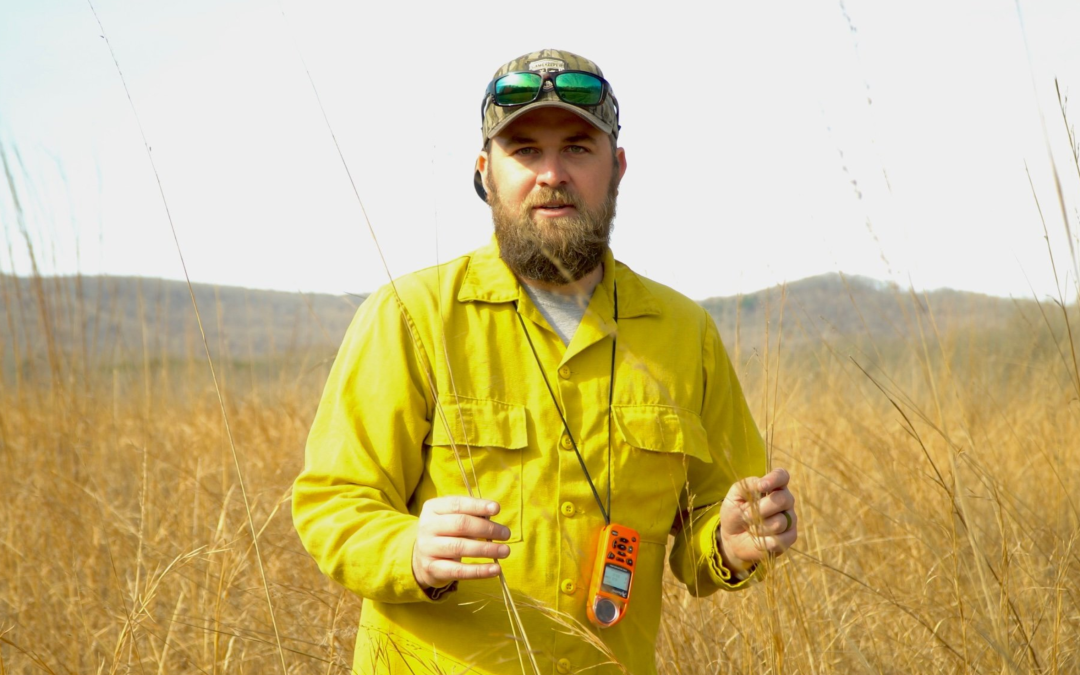
The College of Agriculture will host well-known forester Kyle Lybarger at the invitation of Assistant Professor Ryan Thomson. Lybarger is scheduled to speak April 13 at 11 a.m. in Comer Hall room 207. With 410.7k followers on TikTok and 198k followers on Instagram,...
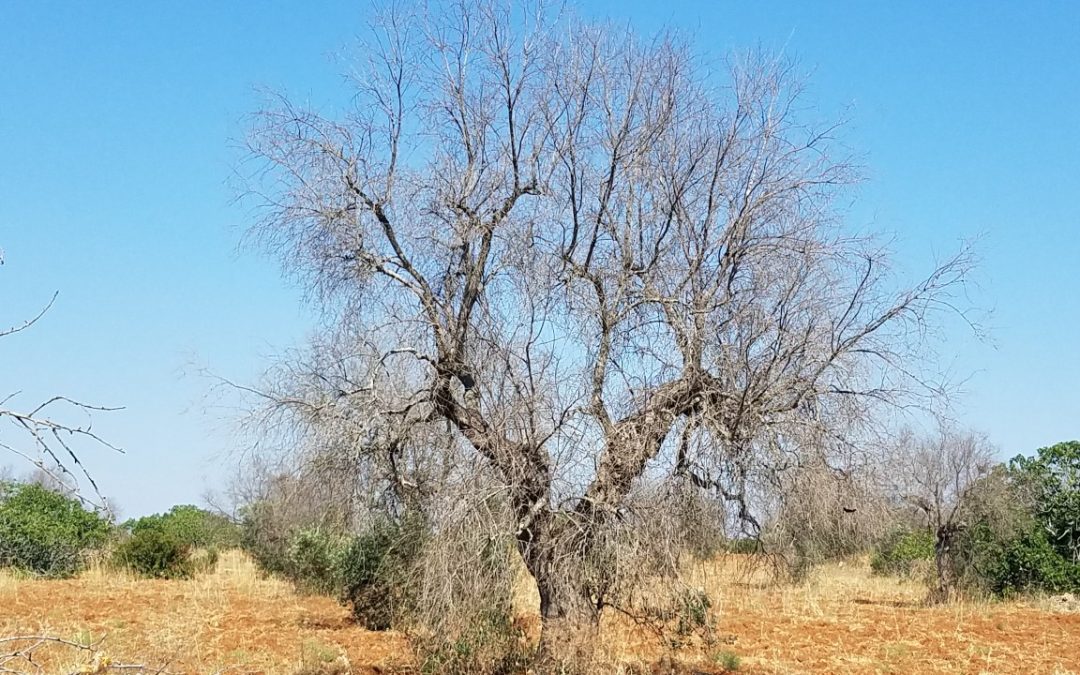
De La Fuente first Auburn researcher to receive EU-funded award An Auburn University researcher and professor is part of an international team of scientists who are playing a pivotal role in combating a disease that is threatening major tree crops around the world....
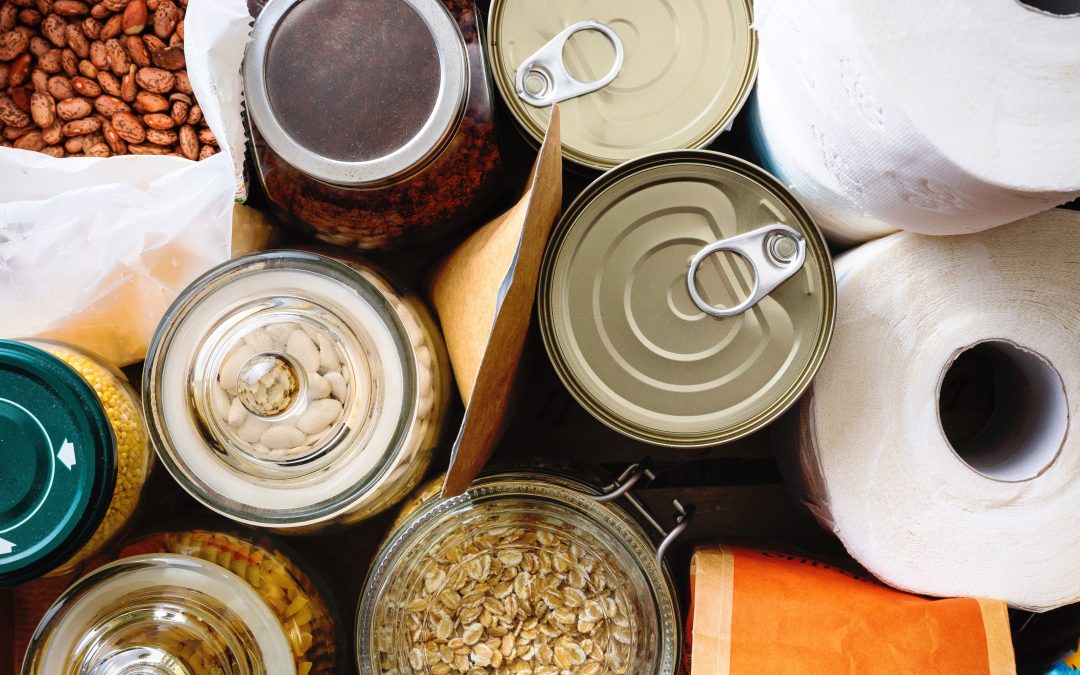
As Congress begins debating a new Farm Bill — including the Supplemental Nutrition Assistance Program (SNAP) — an Auburn University research project reveals one of the effects of stricter work requirements for participating in SNAP. SNAP provides nutrition benefits to...
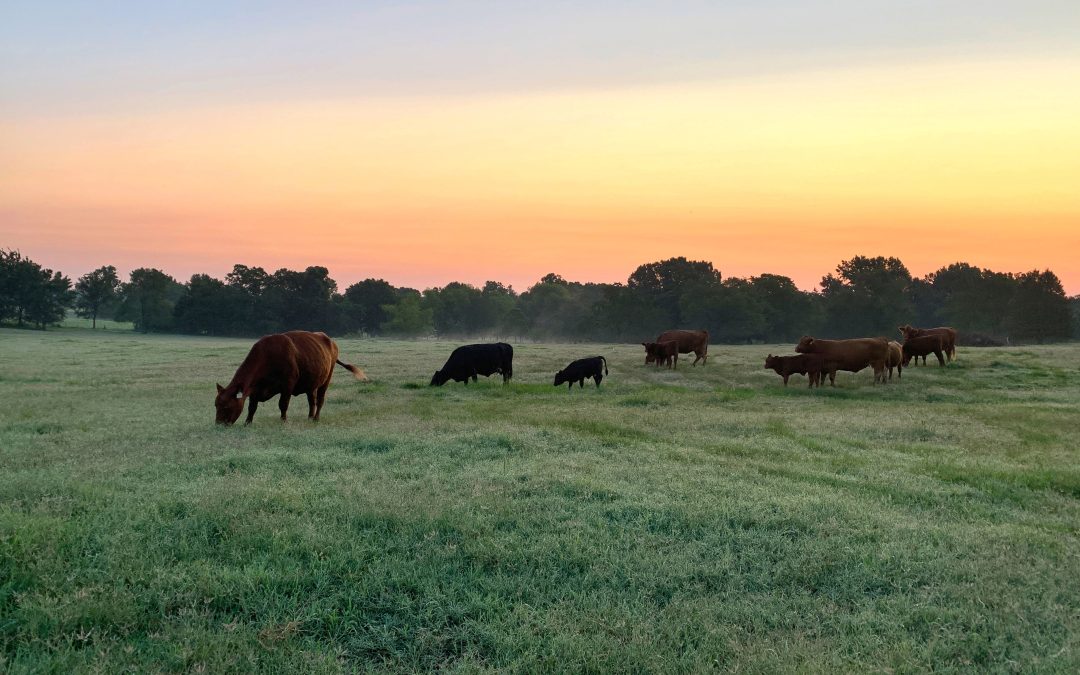
Auburn University is one of four U.S. universities to share in a nearly $2.8 million grant from the USDA’s National Institute of Food and Agriculture (NIFA). The award is part of the Agriculture and Food Research Initiative-Foundational Knowledge of Agricultural...
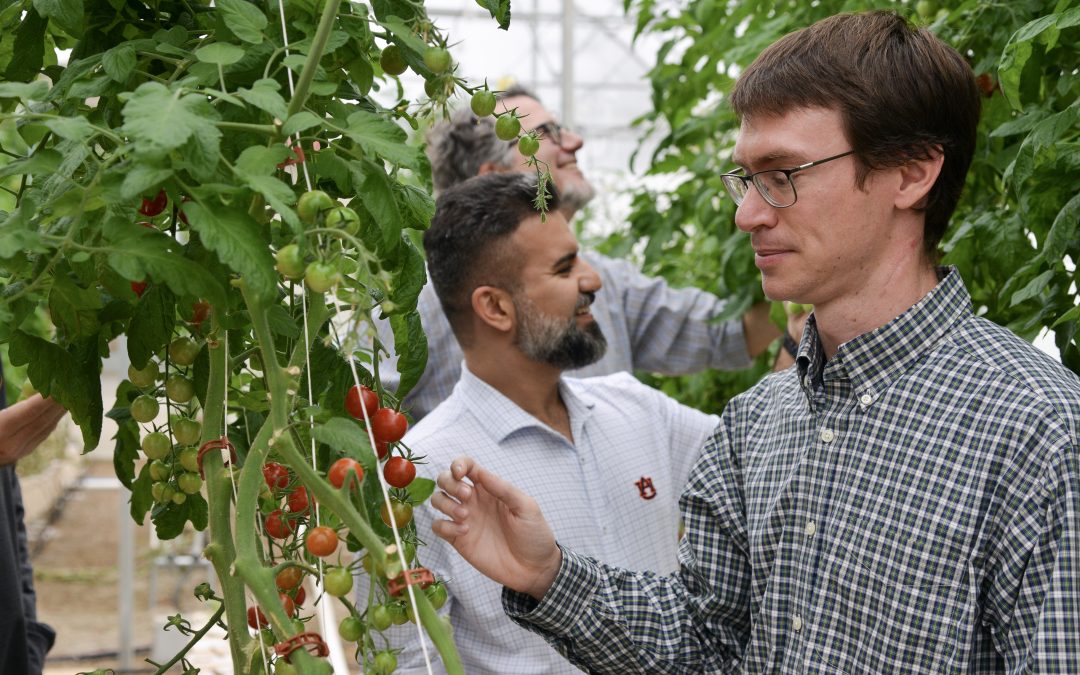
While controlled environment agriculture or CEA has the potential to improve access to local, nutritious fruits and vegetables on a year-round basis, the greenhouse gas emissions associated with greenhouse production is five times higher than field-grown produce. For...
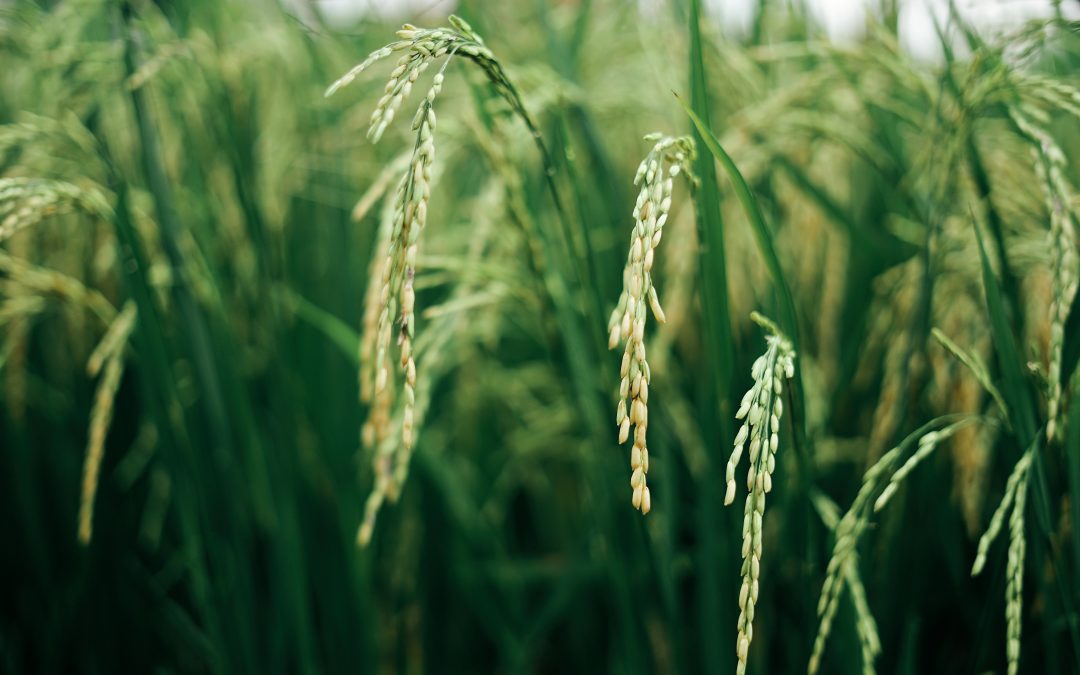
While phosphorus is an essential element for plant metabolism and growth, its future supply under elevated levels of atmospheric carbon dioxide is uncertain. A shortage of this important nutrient could lead to lower crop yields, especially in poorer countries. “Our...

International student Sierra finds passion for food science By Rachel Damiani Katherine Sierra, an Auburn University master’s student in food science, has won multiple awards that hinge on her public speaking ability, including a third-place award for her poster...

Andre da Silva, assistant professor and extension vegetable specialist in the Auburn University Department of Horticulture, was recently named the national winner of the 2023 Professional Early Career Award from the American Society for Horticultural Science (ASHS) at...

Farmers have a hard enough time battling the pests they can see. The ones they can’t see — like plant parasitic nematodes — present another challenge altogether. These worm-like, sometimes microscopic animals are major agricultural pathogens that attack Alabama crop...

The Auburn University College of Agriculture and the Alabama Agricultural Experiment Station were awarded approximately $6 million from the U.S. National Science Foundation (NSF) for a four-year project entitled “Developing effective adaptation strategies to enhance...

Two researchers in the Auburn University College of Agriculture and the Alabama Agricultural Experiment Station are recipients of separate grants from the USDA-NIFA Agriculture and Food Research Initiative (AFRI), the nation’s leading competitive grant program for...

As 18-year-old Mariannah Harding straightened her master’s regalia on Samford Lawn, she reflected on the days she worked in Auburn University’s most iconic building. “I watered the plants in Samford Hall,” she said. “I remember looking outside, watching students take...

Two faculty members from the College of Agriculture’s Department of Agricultural Economics & Rural Sociology are being honored nationally for their published works. Assistant Professor Wenying Li has received the 2022 Best Economics Paper in Food Safety and...

By Mike Jernigan Why major in agriculture today? There are many reasons, and some of them have a certain degree of urgency. Food insecurity is one of the greatest problems facing our planet. Solving the problems of producing more food in an increasingly hungry world...

You’ve heard of farm-to-fork restaurants. At Auburn, we offer rooftop to fork, and it’s only an elevator ride away. Atop the Tony and Libba Rane Culinary Science Center, adjacent to Ag Hill on the Auburn campus, lies an entirely edible rooftop garden operated by...

There’s lot of waste in this land of plenty, with an estimated 30% of the edible food produced annually in the U.S. being wasted. This amounts to more than 133 billion pounds and $160 billion worth of food, with a significant portion wasted at the consumer level. This...

With scientific research and discovery occurring at a dizzying rate, it’s difficult to imagine there are frontiers yet to be fully explored, but the microbiome is one. While microbiomes have always existed, little is known about their function in plants and animals....

An internationally recognized cotton breeder has been selected as the next head of the Department of Crop, Soil and Environmental Sciences in the Auburn University College of Agriculture. Steven Hague, most recently a professor in the Department of Soil and Crop...

What happens in a wetland? It’s a simple question with a not-so-simple answer that Auburn University graduate student Olivia LeFevre started studying as an undergraduate under the direction of Associate Professor Thorsten Knappenberger. “I came to Dr. Knappenberger...

An Auburn University associate professor and Extension specialist has been appointed to the USDA National Advisory Committee on Meat and Poultry Inspection (NACMPI). “I am honored to accept this appointment to the USDA National Advisory Committee on Meat and Poultry...

The agriculture industry in the United States is one of the most vulnerable to climate change because of its reliance on favorable weather. Because of this, an Auburn University researcher is seeking to fill a need for rigorous, quantitative evidence of how cover...

The College of Agriculture will host well-known forester Kyle Lybarger at the invitation of Assistant Professor Ryan Thomson. Lybarger is scheduled to speak April 13 at 11 a.m. in Comer Hall room 207. With 410.7k followers on TikTok and 198k followers on Instagram,...

De La Fuente first Auburn researcher to receive EU-funded award An Auburn University researcher and professor is part of an international team of scientists who are playing a pivotal role in combating a disease that is threatening major tree crops around the world....

As Congress begins debating a new Farm Bill — including the Supplemental Nutrition Assistance Program (SNAP) — an Auburn University research project reveals one of the effects of stricter work requirements for participating in SNAP. SNAP provides nutrition benefits to...

Auburn University is one of four U.S. universities to share in a nearly $2.8 million grant from the USDA’s National Institute of Food and Agriculture (NIFA). The award is part of the Agriculture and Food Research Initiative-Foundational Knowledge of Agricultural...

While controlled environment agriculture or CEA has the potential to improve access to local, nutritious fruits and vegetables on a year-round basis, the greenhouse gas emissions associated with greenhouse production is five times higher than field-grown produce. For...

While phosphorus is an essential element for plant metabolism and growth, its future supply under elevated levels of atmospheric carbon dioxide is uncertain. A shortage of this important nutrient could lead to lower crop yields, especially in poorer countries. “Our...